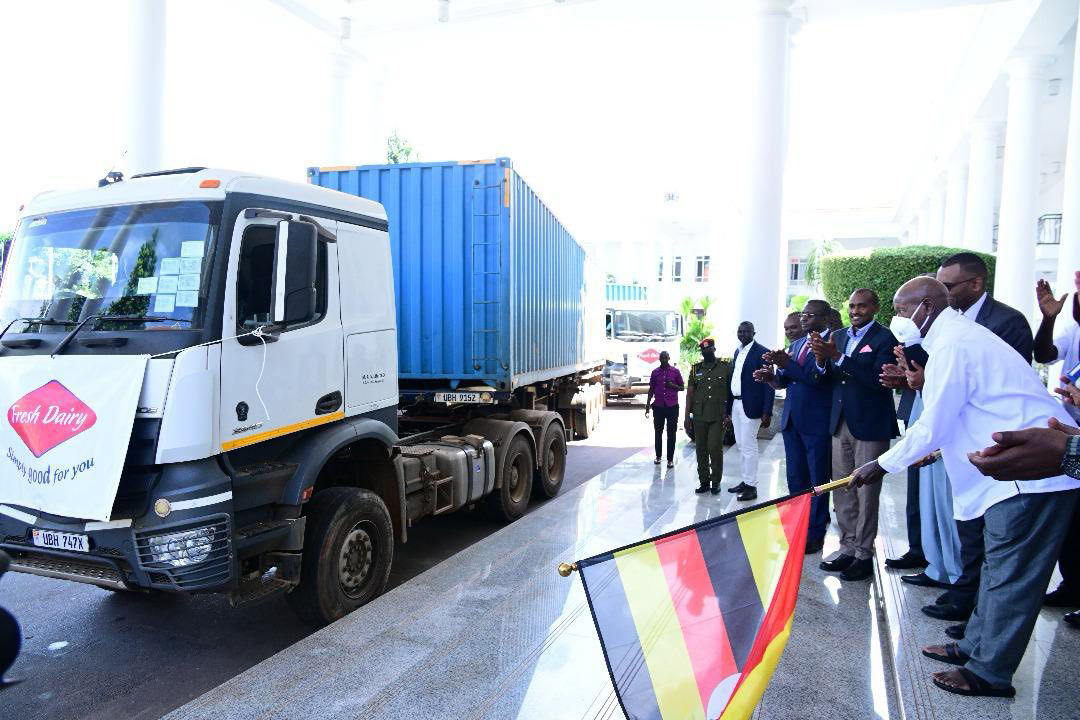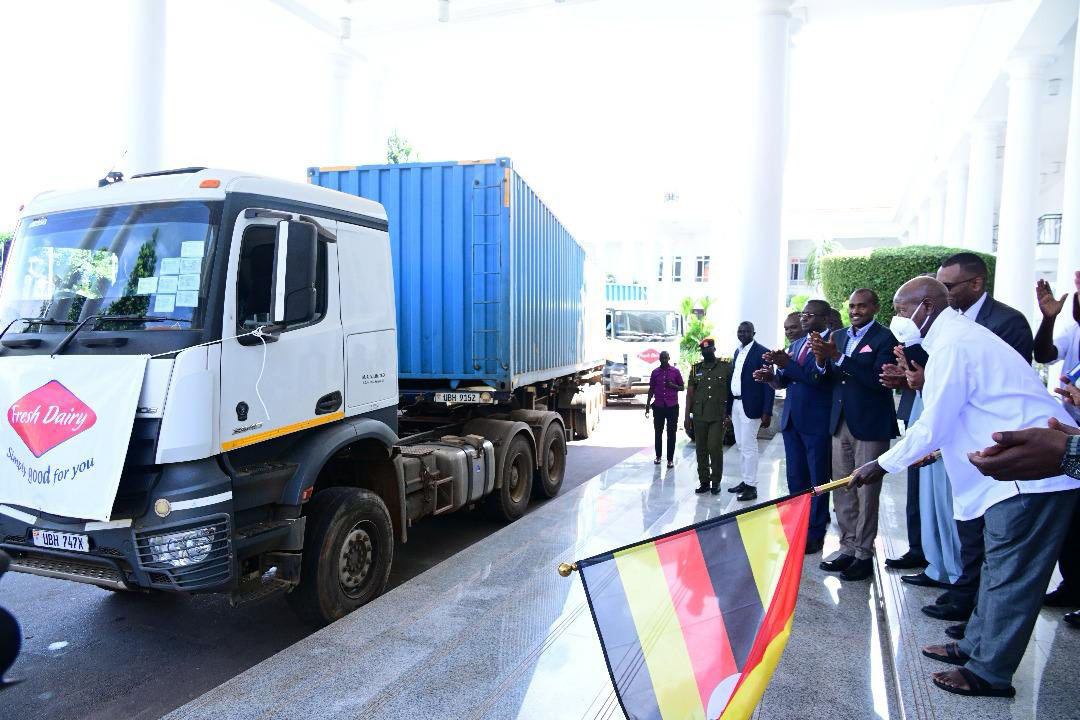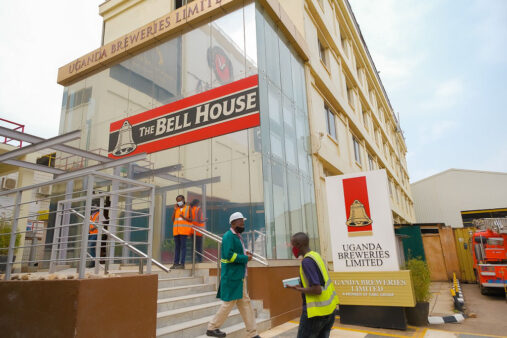How Uganda’s dairy diplomacy rescued Brookside

When Kenya shut its doors on Brookside Dairy Uganda in 2023, it seemed like a death knell for the company’s regional trade ambitions.
But two years later, Brookside is now part of a landmark $500 million dairy deal with Algeria.
The deal is a testament to how setbacks can become launchpads through diplomacy, policy agility, and sheer necessity.
Brookside Uganda, a subsidiary of Kenya’s Brookside Dairy, was blacklisted by Kenya Dairy Board (KDB) in March 2023.
It is majority-owned by the family of former President Uhuru Kenyatta.
But its import permits were revoked, and its products were barred from Kenya – now for over 800 days and counting.
While other Ugandan brands like Lato (by Pearl Dairy) and Dairy Top continued to access the Kenyan market, Brookside was singled out.
It is now suspected that it was politically driven trade protectionism tied to Kenya’s internal rivalries.
A lifeline from Algiers
Uganda’s response was twofold: shield the affected firm and aggressively hunt for new markets. That pursuit paid off in 2025.
In July, President Museveni flagged off Uganda’s first bulk consignment of whole powdered milk to Algeria.
The consignment contained 2,100 metric tonnes valued at $8.2 million, which effectively launched Uganda’s entry into North Africa.
Brookside Uganda, Pearl Dairy Farms, and Amos Dairies secured a three-year supply contract to serve Algeria’s $1 billion dairy market.
Brookside was granted the first three-month exclusive export window (May–July 2025) to absorb shock of the Kenyan restrictions.
Pearl Dairy, Amos Dairies, and the newer Bennifoods plant in Lyantonde will rotate in subsequent quarters.
“It’s the beginning of more opportunities,” said Kennedy Gatheru, Brookside Uganda’s finance director.
“We’re not just exporting powdered milk; we’re exporting resilience.”
The deal signals a reorientation of Uganda’s dairy trade beyond the traditional East African Community (EAC) bloc.
In Algeria, Uganda isn’t just selling surplus milk — it’s gaining strategic leverage in an import market that has traditionally sourced from Europe.
And it’s not stopping there.
Talks are ongoing with Morocco, a market projected to grow to $1.69 billion by 2030.
The North Africa pivot is not just about selling milk.
It’s about rewriting Uganda’s regional trade strategy — less beholden to EAC politics, more plugged into global value chains.
The oversupply dilemma
Uganda produces far more milk than its domestic market can consume.
In the first quarter of 2024 alone, 5.3 billion litres were produced.
But local consumption stood at just 800 million litres, which left over four billion litres unconsumed.
Exporting powdered milk becomes both an economic necessity and a lifeline for tens of thousands of dairy farmers.
Converting liquid milk to powder extends shelf life, opens access to distant markets, and fetches a higher value per litre.
But without unstable and unpredictable markets, that surplus becomes a liability.
Political undercurrents
Why was Brookside Uganda targeted in Kenya while other Ugandan processors were spared?
Though Nairobi had cited market protection and oversupply issues, industry insiders suspect deeper political currents.
Brookside’s majority owners — the Kenyatta family — have clashed with President William Ruto’s administration.
Cutting off access to the Ugandan subsidiary may have been a way to economically isolate a rival power base.
Uganda’s dairy sector became collateral damage in a feud it had little to do with.
President Museveni’s visit to Algeria in March 2023 was no coincidence.
He directly lobbied President Abdelmadjid Tebboune for a dairy trade deal, laying the foundation for what would become July’s shipment.
As Museveni put it, “I am happy to hear that Algeria is interested in buying milk worth $500 million from us.”
Getting to this point required more than diplomacy. Algerian inspectors vetted Ugandan plants and processes for months.
In January 2025, Algeria’s Agriculture Minister Youcef Cherfa urged Uganda’s processors to fast-track compliance.
What followed was a coordinated effort between Uganda’s Dairy Development Authority, Ministry of Trade, and State House.
The success of that process — culminating in July’s export — shows that Uganda can compete in tough and regulated markets.
A glimmer from Nairobi?
Ironically, as Uganda celebrates its Algerian breakthrough, Kenya may be softening.
In the draft 2025/26 budget, Nairobi has proposed to scrap excise duty on food commodities, including milk.
This has stirred cautious optimism.
But Uganda Manufacturers Association chairperson Agha Ssekalala Jr warns: “It’s too early to celebrate.”
“We’ve seen such signals before — what matters is consistent policy, not promises.”
Brookside Uganda’s story is not just about trade bans and recovery.
It’s about how countries can turn external shocks into catalysts for long-term transformation.
By opening new markets in Algeria and potentially Morocco, Uganda is not only de-risking its dairy sector, but it’s rewriting the rules of engagement.
The challenge now is to ensure that such breakthroughs don’t become one-offs.
They must become a broader industrial strategy because in an interconnected, volatile region, resilience may matter more than access.
Share this content:

 EXCLUSIVE: The Partnership Africa Appoints Sidney Nganda to Lead Uganda Operations, Partners with Zeus and Simply Black to Manage Airtel Uganda Account
EXCLUSIVE: The Partnership Africa Appoints Sidney Nganda to Lead Uganda Operations, Partners with Zeus and Simply Black to Manage Airtel Uganda Account







Post Comment